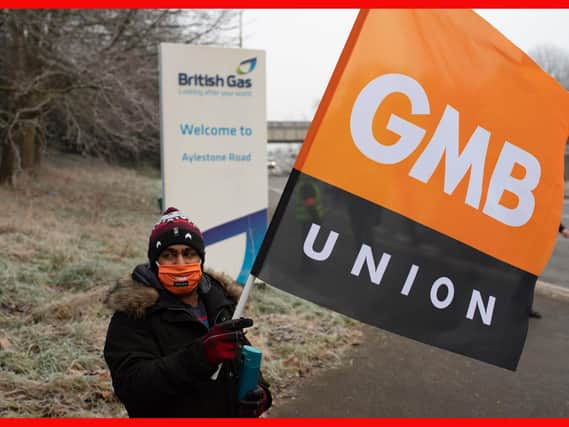British Gas engineers set to increase length of their strike


Members of the GMB union are due to walk out for five days in the coming weeks – on January 20, 22, 25 and 29 and February 1.
The union has now added two extra strike dates – January 30 and 31.
Advertisement
Hide AdAdvertisement
Hide AdThe GMB has accused British Gas of a “fire and rehire” policy of forcing workers to accept cuts to pay and terms and conditions, including a longer working week.


A series of strikes was held earlier this month but the dispute remains deadlocked.
The union said a high number of households have been disrupted by the dispute so far, adding that it understands more than 100,000 customers have had appointments cancelled, a claim the company has disputed.
GMB national officer Justin Bowden said: “The strike is stepping up a gear this week with further days of action, with the company apparently disregarding its customers and its obligations.
Advertisement
Hide AdAdvertisement
Hide Ad“In the face of growing employee and customer discontent, and after the first round of the biggest and most successful gas strike in decades, the management of profitable British Gas continue to bury their heads in the sand.
“British Gas workers have already rejected pay cuts on pain of fire and rehire.”
A spokesman for British Gas owners Centrica said: “We’re operating in an incredibly competitive market and British Gas has lost too many jobs and too many customers over recent years.
“We can’t continue like this. We need to take action to modernise and refocus the company in line with what our customers need now, not what they needed 20 years ago.
Advertisement
Hide AdAdvertisement
Hide Ad“Our pay for engineers will remain the highest in the sector, but we need to get productivity back to where it used to be and, for some, we need to increase the working week from 37 to 40 hours.
“We’re not changing base pay or pensions, and we will reward increased productivity through additional bonuses.
“Eighty-three percent of our employees have already accepted the new terms – including the majority of our engineers.
“Our changes are ultimately to protect and create jobs for the future.”
Comment Guidelines
National World encourages reader discussion on our stories. User feedback, insights and back-and-forth exchanges add a rich layer of context to reporting. Please review our Community Guidelines before commenting.